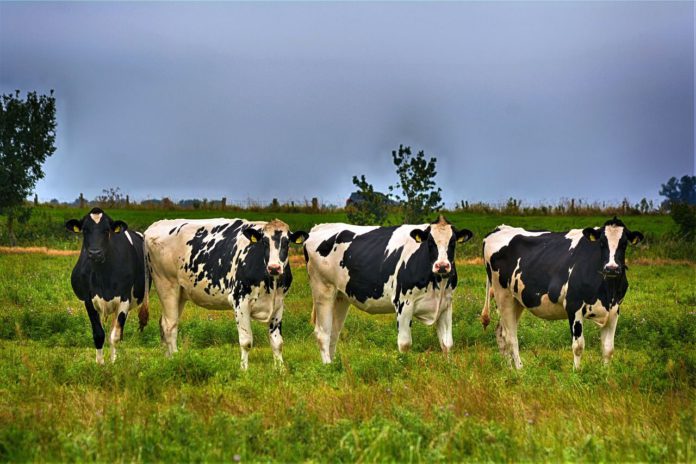Breeding “climate-friendly” cows is the focus of a new study spearheaded by a team across the waters at Wageningen University & Research.
Findings published in the Journal of Dairy Science show that around 30% of variation in methane emissions between individual cows comes from the animal’s genetic background.
According to researchers, “these results indicate that it is possible to breed for cows that are low methane emitters”.
Climate-friendly cows
The paper also suggests taking 25 methane measurements from ten daughters of each bull.
This, they say, will enable farmers to get a “good” indication of the bull’s genetic potential for methane emissions through the genetic relationship with its offspring.
“Mitigation by animal breeding is permanent and cumulative; in each new generation of dairy cows, the methane emissions will be lower than the generation before.”
“Furthermore, breeding does not require farmers to make changes in their herd management, as would be the case when, for example, providing feed additives, and is, therefore, a cost-effective solution.”
Traits
Researchers highlighted that it is “important” for farmers that their cows are “healthy and profitable”.
Therefore, they said they need to explore how selecting for decreased methane emissions impacts cow health and milk production.
WUR and CRV and FrieslandCampina will investigate the relationship between cow traits in the PPS project, Climate Smart Cattle Breeding.
They say the aim is to work towards implementing a breeding value for methane in national breeding programmes.
Teagasc’s research
Meanwhile, closer to home, Teagasc is undertaking a large-scale characterisation of methane emissions in Irish beef cattle.
According to the state agency, Ireland’s first large-scale measurement of methane emissions in beef cattle has yielded “promising” results.
They are “making strides” towards identifying and ultimately breeding for low methane emitting beef cattle.
The aim is to improve the environmental sustainability of Ireland’s national beef cattle herd.
To date, the relationship between methane output and feed intake has limited the genetic selection of low methane emitting ruminant livestock.
Hear more from Paul Smith, who has conducted groundbreaking research in this field.





